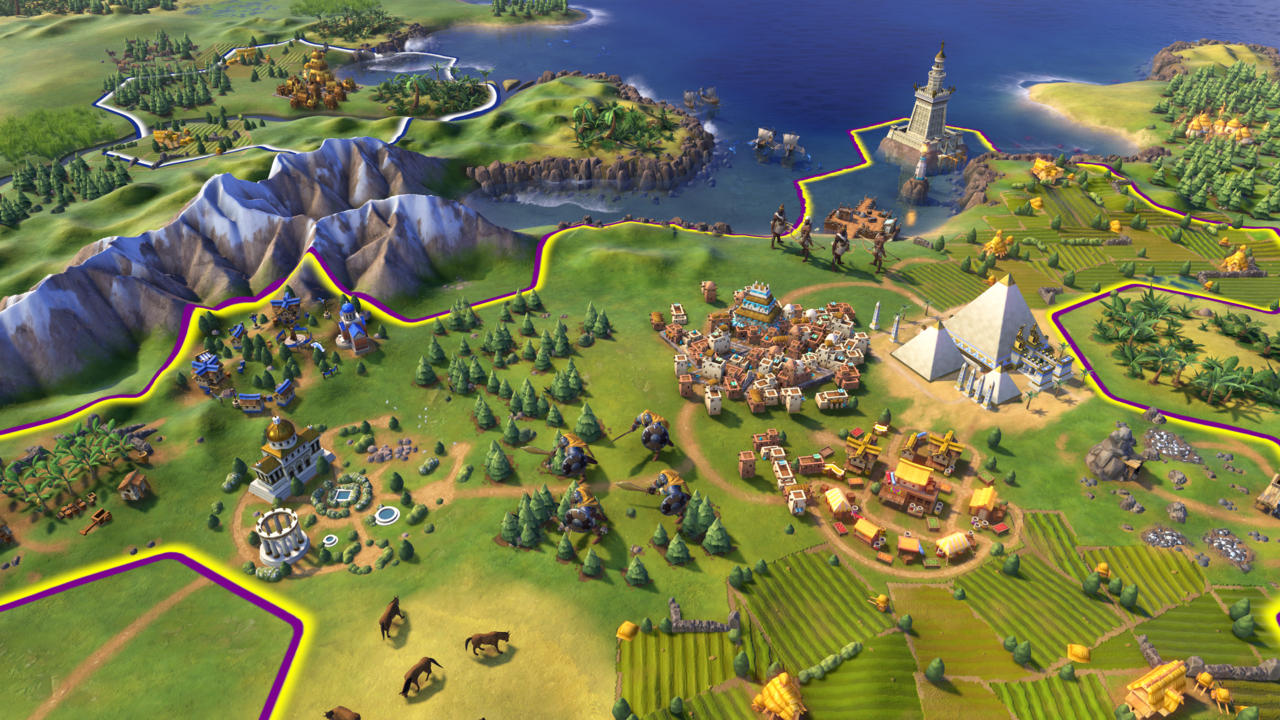Civilization 6 Revealed, Brings Major Changes
Firaxis will release the sequel on October 21, 2016.
The great cities of history were centers of culture, science, and industry. They housed artists. They fostered inventions. They raised factories to build machines of war. In Civilization VI, cites are more nuanced than ever and, if developer Firaxis has its way, the key to making playthroughs different, each and every time.
Created by the lead designers of Civilization V's major expansions (Gods and Kings and Brave New World), Civ VI marks a drastic departure from how we think about city placement, growth, expansion, and invasion. It does so by "unstacking" cities. That is, instead of piling your palace, buildings, wonders, and garrison troops all on one hexagonal tile, Civ VI spreads your settlement into several districts on multiple tiles.
This means each metropolis will be more specialized than those of earlier franchise entries. By dividing cities into different districts, you'll make use of different terrains, more varied resources, and more overall land. As director Ed Beech tells it, this creates a more refined take on the classic Civ formula.
"We want to stop players from falling into patterns," he says. "We want players to build their empires differently every time."

Unstacking cities will allow for more strategic warfare as well. "You can do bombing raids on key industrial districts," Beech says. Seeing as how farmland, factories, and markets are now separated, the "when and where" of any invasion is key. If London is pumping out armored tanks and fighter jets, you can attack its factory tiles. If Cairo is generating ample currency, its markets are the obvious targets.
This school of thinking works from the other side as well. When defending these key points, you'll need to prioritize certain districts over others, especially when outnumbered or outgunned. Deciding which laboratories to cede, which wonders to abandon, and which farms to let burn are some of the tough choices facing any empire's leader.
City building isn't the only thing Beech and his team are reworking. There's also what Firaxis is calling "active research." In past Civ games, you often had to research technologies just for the sake of progressing through the science tree. In Civ VI, however, the research system allows for boosts. As Beech described them, these are smaller objectives you can accomplish in order to enhance science development in specific areas.
We want Civilization VI to feel different each time you play.
Ed Beech, Firaxis
So if Osaka sits in a lush valley bisected by a wide river, you could till the land, build aqueducts, and unlock a food production boost to feed your entire civilization. Meanwhile, Tokyo rests next to towering mountains, making it the ideal place to mine for industrial supplies, thereby creating the machines necessary to defend both cities.
This concept isn't completely new to the franchise. But in Civ VI, your cities will unfold differently every time. You'll unlock different research boosts. You'll lay siege to cities--and defend against sieges--using different methods than you did in the previous playthrough.
"We're adding these levels of distinction to the way you settle the world," Beech says. "Each time you settle your first city, start producing food, gold, culture, science, and everything vital to growth, we want it to feel different. We want you to consider your military differently. We want to encourage new approaches. We want it to feel like a new experience each time."

Beech says there are many more features the team has been working on: support units that buff military battalions; a more varied and self-contained multiplayer; a diplomacy system that lets you learn other leaders, adapt to their behavior, and enact policies with them, or against them.
But by changing the way cities begin, grow, and sometimes fall, Firaxis hopes to make the Civilization formula less predictable than it could sometimes be in earlier series entries. The active research system gives you even more options, and if Beech and his team are successful come release day on Oct. 21, the storied franchise could be more dynamic than it's ever been.
Got a news tip or want to contact us directly? Email news@gamespot.com
Join the conversation